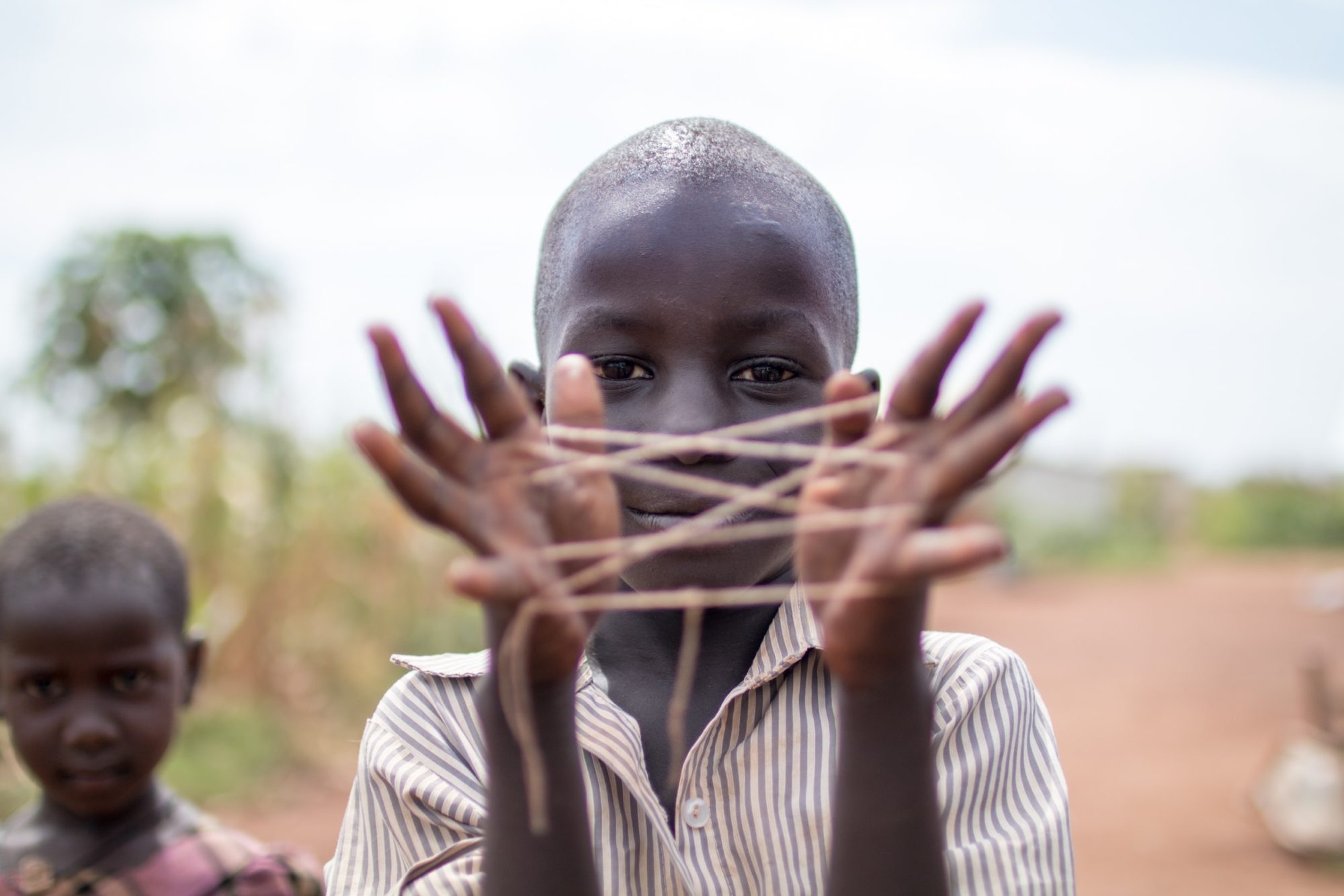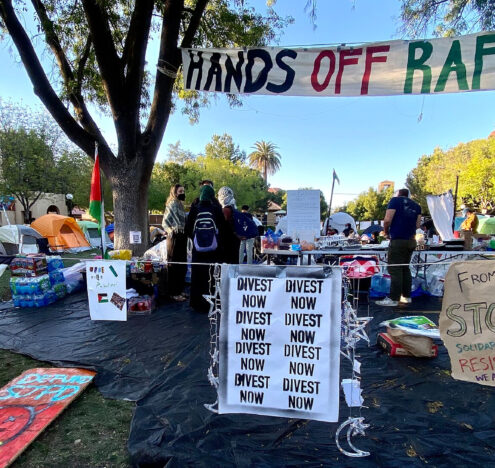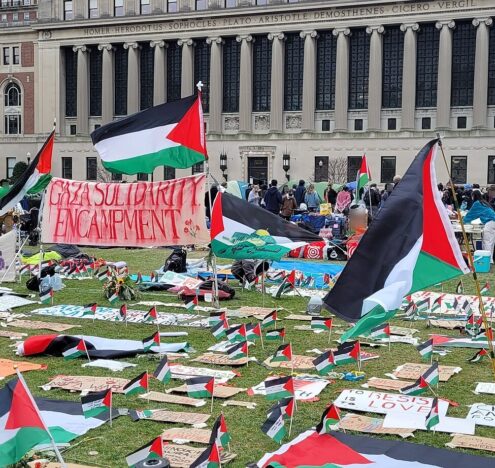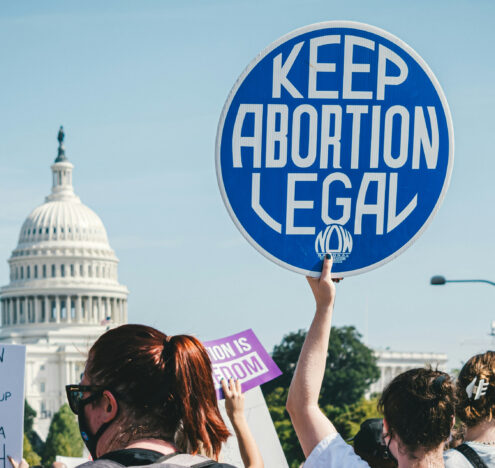“Africa and the Atomic Bomb” is a three-part series that explores Africa’s role in the global nuclear order by examining the complexity and variety of African relationships with nuclear arms and nuclear energy through the lenses of security, development, climate change and the environment, and global justice and equality. Many thanks to the Harvard Kennedy School’s Belfer Center, which hosted a panel titled “Africa and the Atom” on March 26, 2021 that prompted the series.
In Part I, Olamide Samuel explains the importance of recognizing the nuanced, rich, and important narratives from African states about the global nuclear order. Joelien Pretorius dives deeper, focusing on African schools of nuclear thought and how those continue to shape the perception of African leaders. Jean Yves Ndzana then points to Africa’s colonial nuclear history and the current injustice of the international nuclear order, and its potential impact on future African leaders.
GOING BEYOND THE STATUS QUO
Olamide Samuel
Since the entry into force of the Treaty on the Non-Proliferation of Nuclear Weapons (NPT), narratives about the global nuclear order have been dominated by assumptions and practices that are inherently exclusive and discursively violent. These include: The centrality of the NPT’s grand bargain, the reduction of threat perception to proliferation challenges, the substitution of objective logic with the fallacies of mutual assured destruction (MAD), the reservation of in-group legitimacy to NPT signatory states, and the impossibility of nuclear disarmament.
Within this paradigm, causal accountants of the atomic age have been preoccupied with two distinct historical periodizations, which consists of the first nuclear age, characterized by vertical proliferation concerns and the second nuclear age that is focused on horizontal proliferation concerns. The narrative of the global nuclear order has so far relied on a limited reconstruction of reality, which selectively identifies and accepts certain concepts, event-processes, and actors as facts, and weaves them together to provide a convincing narrative. In the same vein, the omission, reduction, and suppression of concepts, events, and actors that do not fit neatly into western-centric interpretations of the global nuclear order, maintains the coherence and exclusivity of this narrative.
Although it is absolutely impossible for us to cover the full scope of African engagement with the global nuclear order in this forum, our intention is to begin a long overdue recognition of the nuanced, rich, and important narratives that evolved on the continent.
The advent of the Treaty on the Prohibition of Nuclear Weapons (TPNW), however, and the humanitarian initiative can be viewed as transformative historical events, primarily because they challenge the cogency of the status quo narrative. The subjectively differentiated reactions to these changes (on a spectrum ranging from unconditional support to unequivocal rejection), also highlight the intentionality and interests behind the status quo.
The recent changes to the rules and institutions of nuclear politics represent a significant systemic transformation, which warrant pragmatist and methodized inquiries into the overlooked agents and agencies that have been obscured by dominant discourses. The Africa and the Atom forum represents one of such inquiries focused on African agency, and provides an Afrocentric perspective of the current societal recreation, and historical structuration of the global nuclear order.
Explaining African Engagement
African engagement with the global nuclear order goes beyond victimhood and suppliance. A more thorough investigation reveals a plethora of dynamic and thoughtful agents, a rich history punctuated by the articulation of discourses on rights, liability, morality, and legal obligations that have shaped contemporary practices in the nuclear order. Although the relational character of agency (as immersed within contextual structures that confine/oppress them) is duly noted, this forum also recognizes the need to mitigate established practices of discursive suppression, omission, and reduction of African agency in the global nuclear narrative, and serves as an initial step to rectify this imbalance.
This forum, therefore, provides timely, and long-overdue attention to Afrocentric interpretations of the nuclear order, by recasting the NPT’s grand bargain from the African perspective, presenting the threat perception of nuclear imperialism vis-a-vis the lived experiences of uranium extraction and nuclear explosive testing, drawing attention to the African pursuit of civilian nuclear energy, and restating the African experience of leadership in the realm of nuclear disarmament.
Although it is absolutely impossible for us to cover the full scope of African engagement with the global nuclear order in this forum, our intention is to begin a long overdue recognition of the nuanced, rich, and important narratives that evolved on the continent. I hope that the commentaries presented herein, will encourage more realistic interpretations of the interests and potential action contexts of African actors in their future relationships with the global nuclear order.
Olamide Samuel is a research associate in Nuclear Politics at the University of Leicester.
AFRICA AND NUCLEAR ORDERING
Joelien Pretorius
The perceived monopoly that nuclear-armed states, and particularly the United States, has on ordering the nuclear issue area is part of the ordering problem the world faces today. Mainstream literature and discussions about the nuclear order understate the role of other actors, especially Africans, in framing discussions related to nuclear priorities. And yet, there are ample examples of African states exerting their influence in this issue area individually, such as South Africa’s role in the indefinite extension of the NPT, and in coalitions, such as the Non-Aligned Movement, the New Agenda Coalition, and the Humanitarian Initiative.
African Schools of Thought
There are two schools of African thought related to nuclear disarmament: Kwame Nkrumah’s abolitionist, liberal institutionalist view and Ali Mazrui’s “proliferate to disarm” view.
Both Nkrumah and Mazrui linked nuclear weapons to racism and imperialism, but in different ways. For Nkrumah, nuclear imperialism was the exploitation of smaller states and their indigenous people and territory for nuclear tests and uranium mining. Mazrui’s approach had more to do with the psychology of military superiority that made nuclear imperialism possible. He, therefore, argued against the NPT that froze a discriminatory set up between nuclear “haves” and “have nots.” Instead, he promoted a consortium composed of Nigeria, Zaire (now the Democratic Republic of the Congo), and a black-ruled South Africa each with a small military nuclear capability. He believed that only then would nuclear armed states realize that they cannot keep others from having nuclear weapons if they don’t give them up themselves. Nkrumah’s approach dominated Africa’s input into the nuclear order.
African states impacted the nuclear ordering process by linking the nonproliferation agenda to nuclear disarmament and peaceful uses, manifested in the three pillar structure of the NPT. The nonproliferation pillar requires non-nuclear weapon states to abstain from nuclear weapons, but in return, nuclear weapon states agree to pursue nuclear disarmament in good faith (pillar 2) and not to restrict nuclear technology for peaceful use (pillar 3). Regional initiatives include the 2009 Pelindaba Treaty that added to the constellation of nuclear weapon free zone treaties to make the whole southern hemisphere a nuclear weapon free zone. Africans were also active participants in the push for a discursive shift from a focus on state security to human security and bringing this lens to nuclear weapons — eventually framing the process that established the TPNW. This process became known as the “Humanitarian Initiative.”
The Humanitarian Initiative
Former Nigerian president, Olesugen Obasanjo, was on the World Health Assembly panel that reported on the impact of nuclear weapons on health systems and human well-being in 1984. When he became president in 1988, he formed the Africa Leadership Forum to lobby for security to focus on human beings rather than states. In 1994, the UN Development Program (UNDP) coined the concept of “human security,” which Kofi Annan advocated for in the UN as Secretary-General. The Canberra Commission on the Elimination of Nuclear Weapons in 1996, in which African states participated, foreshadowed the humanitarian initiative. Two years later the New Agenda Coalition (that includes South Africa and Egypt) was formed and took up many ideas from the Canberra Commission. It introduced the human security lens at the 2007 NPT prepcom where the International Campaign for the Abolition of Nuclear Weapons (ICAN) was launched. The 2010 NPT Review Conference Report makes mention of the humanitarian consequences of nuclear weapons. It is also at this point that a number of states, including Egypt, South Africa, and Nigeria, launched the Humanitarian Initiative that unfolded into the negotiation of the TPNW.
African states impacted the nuclear ordering process by linking the nonproliferation agenda to nuclear disarmament and peaceful uses, manifested in the three pillar structure of the NPT.
Despite intimidation by nuclear weapon states, African states were especially active in the TPNW process. While they wanted to move forward on nuclear disarmament, they also prioritized creating a forum where nuclear imperialism would finally be put to rest. African states can participate as equals in this forum, because it bans nuclear weapons for all. Increasingly some African states, such as Egypt and South Africa, are also pushing back against legitimation efforts for the nuclear weapon states’ contempt of their nuclear disarmament commitments. For example South Africa refused to join the US initiative, Creating an Environment for Nuclear Disarmament (CEND). This initiative brings together states and civil society actors to discuss ways to bring about security conditions that will make nuclear disarmament possible. However, South Africa’s view is that these conditions were already established when the NPT entered into force.
It is not far-fetched to say that the nuclear order, if and when properly understood, would look different if African states did not play a co-ordering role in this issue area. If the way that African states have brought their interests and worldviews to bear on the nuclear order is understated or ignored, the dialectic and logic of their actions (or inactions) may not be fully grasped; signals may go unnoticed or could easily be misunderstood or misconstrued.
Joelien Pretorius is an associate professor in the Department of Political Studies at the University of the Western Cape, teaching International Relations and Security Studies.
ARGUING FOR A JUST NUCLEAR ORDER
Jean Yves Ndzana
Africa’s history with the Western world remains shaped by the seal of imperialism, and the global nuclear order is no exception. With respect to past, present, and future relations between Africa and the nuclear global order, the world should pay attention to the notion of otherness and the issue of discrimination that underlies it. Indeed, the issue of discrimination remains a major marker of African perception of the nuclear order. Africa has been playing a passive role in the international nuclear system since the inauguration of the nuclear age. This passivity is visible from both a symbolic or structural perspective, as well as from a factual point of view.
The colonial nuclear history and the present-day injustice of the international nuclear order will shape the collective imaginary of future African generations who will be far more skilled than their predecessors.
With regard to the former, Africa falls into the category of “nuclear deprived” under the NPT. Although the memory of the disasters of Hiroshima strongly shaped the African choice of the creation of a nuclear free zone, established by the Treaty of Pelindaba, the lack of expertise and nuclear infrastructure should not be overlooked. Moreover, the creation of rudimentary nuclear programs in countries like the Congo (formerly Zaire) illustrates the desire for “power” among Africans. In addition, African leaders’ insistence on a commitment of “nuclear owners” uncovers the desire to address this humiliating structural injustice, which is evident from two instances: How the Manhattan Project used uranium from Africa and how the continent has been routinely used as a testing ground for Western nuclear projects, especially France using Algeria as a testing site.
The Perils of Nuclear Inequity
Unlike in the past, Africa is now advocating for a more just and equitable global nuclear order. The criticisms leveled at the NPT review conferences, the support for the nuclear programs of countries in the South like Iran or the adoption of the nuclear ban treaty bear witness to African frustrations linked to nuclear inequity. In addition, the perceived political usefulness of nuclear weapons in the management of international conflicts, as was demonstrated by the annexation of Crimea, as well as vertical nuclear proliferation, increasingly diminish the relevance of nonproliferation rhetoric in African public opinion. Considering the toppling of Muammar Qaddafi’s regime in 2011 after the handing over of Libya’s nuclear weapons program, the attractiveness of a nuclear weaponized Africa could gain momentum despite the aforementioned treaty of Pelindaba. With respect to vertical proliferation, the African leaders keep expressing their deep concern over the slow pace of progress by nuclear weapon states to accomplish the total elimination of their nuclear arsenals.
Beyond the rhetoric of the nuclear powers, confidence-building measures are urgently needed. For example, the increase in nuclear cooperation in education, scientific, and infrastructure-related areas on the one hand, and the effective management of nuclear dividends for the development of African states endowed with energy potential on the other, will help to appease criticisms of the nuclear order from African elites and civil society organizations.
The colonial nuclear history and the present-day injustice of the international nuclear order will shape the collective imaginary of future African generations who will be far more skilled than their predecessors. In other words, the current frustrations of Africans regarding the unfair nuclear order could foster the “revenge” of future generations and lead them to undo many nuclear decisions made by their predecessors. And their easier access to the nuclear know-how would undoubtedly be an asset in achieving their goals. Therefore, this imaginary must be addressed and rectified lest it lead to increasing the value of nuclear weapons in the eyes of future African leaders and driving nuclear proliferation.
Jean Yves Ndzana is a PhD candidate at Leiden University, Netherlands. His research project investigates the conditions under which coercive diplomacy can compel a state to abandon its nuclear program.





















